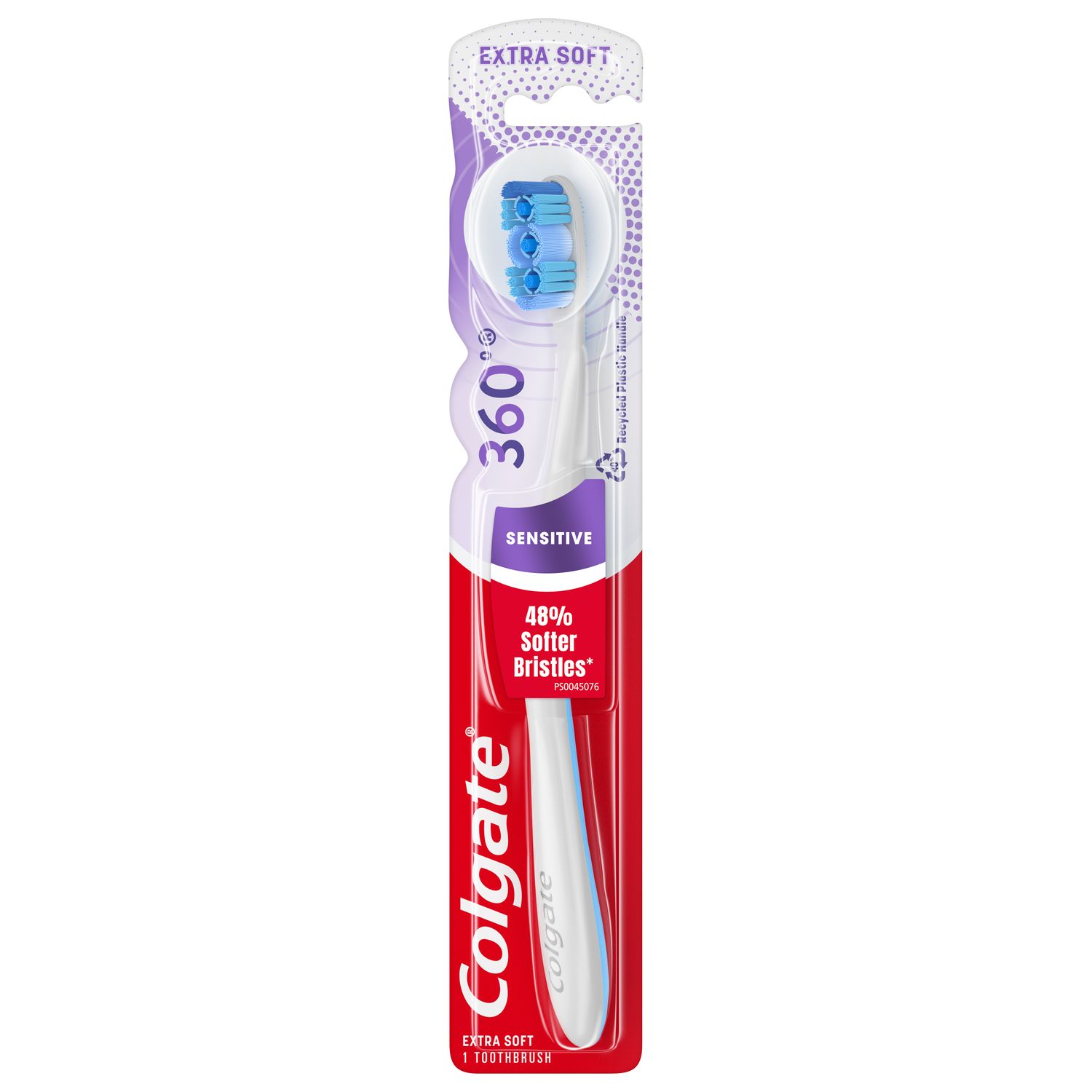What Is Periodontal Disease?
Periodontal means "around the tooth" and refers to the periodontium – the gums, ligaments, and bone that surround your teeth and hold them in place. So periodontal disease refers to the infection and inflammation of these tissues. Periodontal disease is a progressive disease, and the severity depends on which stage of the disease you are currently in.
What Are the Stages of Periodontal Disease?
The first stage of gum disease is referred to as gingivitis. This is the early stage when only the gums are affected. At this point, periodontal disease can easily be treated and even reversed, often without the need for professional treatment.
However, untreated gingivitis can turn into advanced periodontal disease, known as periodontitis. This is when the infection spreads to the ligaments, bone and other tissues beneath the gums. It causes the supporting structures to irreversibly break down, and can eventually lead to tooth loss. And as we’ll discuss later in this article, advanced periodontal disease is also associated with a host of wider health problems, too.
What Causes Periodontal Disease?
Periodontal disease is caused by a build-up of bacterial plaque (biofilm). In the first stage, plaque accumulates on the teeth and around the gum line. It contains bacteria that irritate and inflame the gums, which causes the sore, bleeding gums we associate with gingivitis.
If plaque is not removed, the inflammation can cause the gums to start pulling away (receding) from the root surfaces of the teeth. This causes periodontal pockets below the gum line where plaque, tartar (hardened plaque), and bacteria can hide. It is at this point that periodontitis sets in, causing inflammation to the ligaments and bone.
The main cause of plaque build-up and periodontal disease is poor oral hygiene. Not brushing properly or often enough allows plaque to accumulate and bacteria to thrive. Bacteria feed on the sugars in your diet, so sugary foods and drinks can contribute to plaque build-up, too.
There are other risk factors that can contribute to periodontal disease, such as:
Smoking.
Nutrient deficiencies, particularly a lack of vitamins C, D and K.
Crooked or crowded teeth, braces, and bridges.
Grinding, gritting, or clenching teeth.
Medications.
Diseases like cardiovascular disease and diabetes.
Stress.
Hormonal fluctuations during puberty, pregnancy or menopause.
Age.
Genetics.
Is Periodontal Disease Hereditary?
Speaking of genetics, can periodontal disease be passed down from your parents? According to the American Dental Association (ADA), genetics is a risk factor for developing periodontal disease. So if your parents or siblings have gum disease, you have a higher chance of developing it too.
However, that doesn’t automatically mean that you will! Genetics is just one of many risk factors that can contribute to periodontal disease, but factors like oral hygiene, diet and smoking are far more influential. By focusing on these risk factors, you can dramatically reduce your risk of periodontal disease, regardless of your genetic predisposition.
Is Periodontal Disease Contagious?
Yes, the bacteria responsible for periodontal disease can be passed from person to person through saliva. This can happen by, for example, kissing, sharing glasses or utensils, or using somebody else’s toothbrush.
You can reduce your risk of transmission by making sure not to share toothbrushes, utensils, and so on. However, just because the bacteria is transmitted to you, that doesn’t necessarily mean you’ll go on to develop periodontal disease.
In a healthy mouth, the harmful bacteria that cause gum disease are typically kept under control by good bacteria, your immune system, and good oral hygiene. It’s only when one of those systems fails – you don’t brush your teeth regularly, smoke, or get sick, for example – that opportunistic gum disease bacteria has the chance to thrive. By focusing on healthy habits and good oral hygiene, you can reduce the risk of this happening.
Other Health Implications of Periodontal Disease
Unfortunately, the impact of periodontal disease goes beyond your mouth. Researchers are finding more and more links between gum disease and general health concerns like:
- Heart disease. Infection in your gums may increase the risk of clogged arteries and cardiac infections, and can worsen existing heart conditions.
- Stroke. Likewise, periodontal disease may increase the risk of stroke caused by blocked arteries.
- Respiratory disease. Bacteria from the mouth may spread to the lungs, causing lung infections or worsening existing lung conditions. Immunocompromised adults with gum disease may be at increased risk for severe pneumonia.
- Premature birth. Gum disease during pregnancy may increase the likelihood of delivering the baby too early and the possibility of low birth weight.
- Diabetes. Periodontal disease may make it more difficult for people with diabetes to control their blood sugar than those with healthy gums. In turn, diabetes can contribute to periodontal disease.
What Are the Signs and Symptoms of Periodontal Disease?
So you know the importance of treating periodontal disease quickly, but what signs and symptoms do you need to look out for? The most obvious symptom of gingivitis is sore, inflamed gums that might bleed when you brush or floss.
Signs that you might be developing advanced gum disease include:
Bad breath or a persistent bad taste in your mouth.
Receding gums that look like they’re shrinking.
Longer-looking teeth with exposed roots at the gum line.
Sensitive teeth, especially near the gum line.
Loose or shifting teeth.
A change in how your dentures or other appliances fit.
A change in how your top and bottom teeth bite together.
Pain when chewing.
If you recognize any of these symptoms, make an appointment with a dental professional for an evaluation. They will examine your gums with a dental probe to look for infection. They also may take new X-rays to compare with older X-rays and identify any changes to your teeth or bones. If a referral to a specialist is needed, your dentist will refer you to a periodontist.
You should be aware that in the early stages, there may be no symptoms of gingivitis. That’s why it’s important to keep up with those regular dental check-ups! Your dentist or hygienist can catch and treat gingivitis early, even if you haven’t noticed it yet.
How to Prevent Periodontal Disease
Because the effects of severe periodontal disease cannot be completely reversed, it's important to establish a preventative care routine to stop the disease from developing or getting worse.
The following habits can help to keep your gums healthy:
Brush your teeth twice a day with a fluoride toothpaste to remove plaque.
Floss every day to remove hard-to-reach plaque from between the teeth.
Use an antibacterial mouthwash every day.
Get lots of nutritious food in your diet and keep sugar to a minimum.
Quit smoking or using tobacco.
It is also recommended to visit your dentist every six months for a professional cleaning to remove plaque and tartar in places that are harder to reach.
How to Treat Periodontal Disease
If you are diagnosed with periodontal disease, treatments may vary depending on the severity of your case. Some of these treatments include:
Scaling and root planing. For gingivitis, non-surgical treatments may be available to restore periodontal health. Scaling is a deep cleaning technique that carefully removes plaque and tartar from your teeth both above and below the gum line. Root planing removes plaque and tartar from the root surfaces, smoothing rough spots that trap and hold bacteria, and allowing the gum tissue to heal and reattach to the teeth.
Periodontal gum surgery. A pocket reduction procedure may be an option if the periodontal pockets surrounding your teeth become so deep that they are difficult to clean with regular at-home oral hygiene and a professional care routine. During this procedure, the periodontist makes incisions in your gums to flap back the tissue, providing better access to the roots for more effective scaling and root planing. This will allow for the reattachment of the gum tissue to the teeth.
Gum graft surgery. If periodontal disease progresses and gums begin to recede, the periodontist might recommend surgery to reshape gums or graft new tissue to cover exposed tooth roots. During this surgery, the periodontist takes gum tissue — usually from the roof of your mouth — to cover the root and protect your tooth from decay, bone loss, and further recession.
Regenerative procedures. When periodontitis has destroyed the bone supporting your teeth, regenerative procedures may help reverse some of the damage. After the periodontist exposes the root and removes the bacteria, they may graft bone to the surrounding area of the tooth to encourage your body to regenerate the lost bone and tissue. In time, if adequate bone is present, you may then be a candidate for dental implants to replace teeth that have been lost.
Will I Lose My Teeth if I Have Periodontal Disease?
In very advanced cases of periodontitis, the damage to the bone and supporting structure may be so severe that it can no longer hold your tooth in place. If surgical options are unable to fix this, your dentist or periodontist will recommend extracting the tooth instead. If you’re at this stage, that can be difficult to hear. However, your dental professional may be able to offer you reconstructive options to restore your smile, so don’t be discouraged from seeking treatment.
The good news is that in many cases, periodontitis can be treated without the need for tooth extraction. The earlier it’s diagnosed, the more treatment options are available to you, and the better chance you have of saving your teeth. That’s why we always recommend regular dental check-ups, and advise you to book an appointment even sooner if you have symptoms of periodontal disease.
Don't ignore those tender or bleeding gums! The sooner periodontal disease is diagnosed and treated, the faster you can return to a healthier mouth.
ORAL HEALTH QUIZ
What's behind your smile?
Take our Oral Health assessment to get the most from your oral care routine
ORAL HEALTH QUIZ
What's behind your smile?
Take our Oral Health assessment to get the most from your oral care routine















